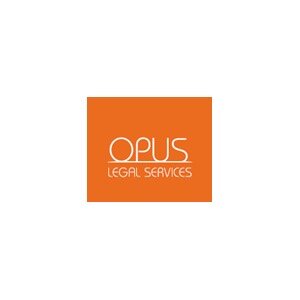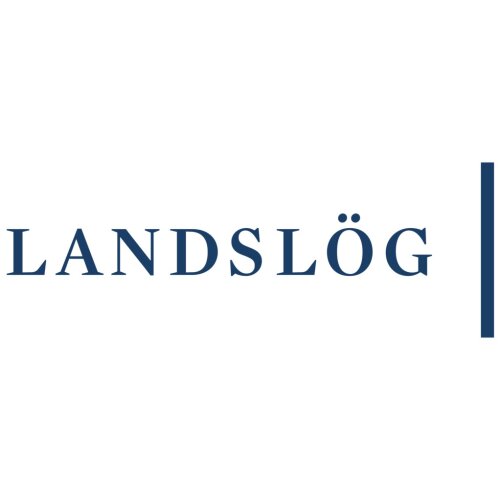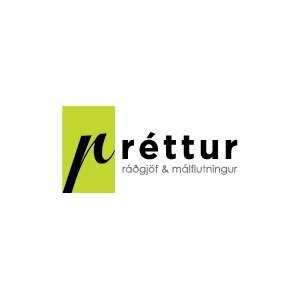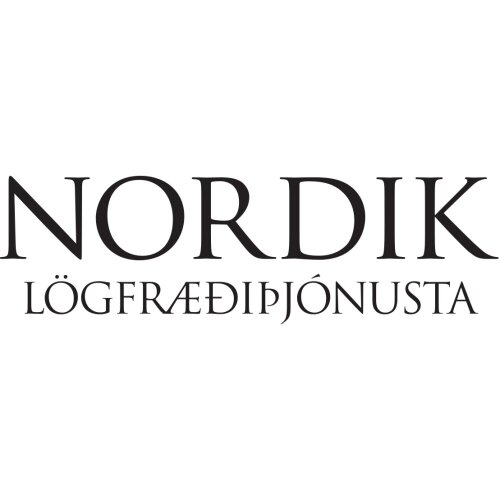Best Art & Cultural Property Law Lawyers in Reykjavik
Share your needs with us, get contacted by law firms.
Free. Takes 2 min.
List of the best lawyers in Reykjavik, Iceland
About Art & Cultural Property Law in Reykjavik, Iceland
Art & Cultural Property Law in Reykjavik, Iceland, encompasses the legal protections afforded to artistic creations and cultural artifacts. This field of law focuses on issues related to the ownership, transfer, and protection of works of art and cultural heritage. Reykjavik, as Iceland's cultural hub, is home to numerous collections, galleries, and institutions that adhere to both local and international regulations to preserve and promote Icelandic culture. The laws in this domain aim to protect Iceland's history and ensure the responsible acquisition and repatriation of cultural artifacts.
Why You May Need a Lawyer
Individuals and organizations may require legal assistance in art and cultural property law in various situations, such as:
- Disputes over the ownership or provenance of artworks or cultural artifacts.
- Issues relating to the export or import of cultural goods.
- Inheritance matters involving valuable art collections or cultural items.
- Negotiations and drafting of contracts for art sales, loans, or exhibitions.
- Substantiating claims for restitution or repatriation of cultural property.
- Complying with international treaties and conventions on cultural property protection.
Local Laws Overview
The legal framework surrounding art and cultural property in Reykjavik is shaped by several key aspects:
- Protection of Cultural Heritage: Icelandic law is dedicated to the preservation of national cultural heritage, with strict regulations on the excavation and export of archaeological finds.
- Intellectual Property Rights: Artists and creators are protected under intellectual property laws, which safeguard their works against unauthorized reproduction and exploitation.
- International Treaties: Iceland is a signatory to international treaties, such as the 1970 UNESCO Convention, which impacts the movement and trade of cultural property.
- Loan and Acquisition Policies: Museums and galleries in Reykjavik follow specific legal guidelines for the acquisition and loaning of artworks, ensuring ethical practices.
Frequently Asked Questions
What is cultural property?
Cultural property refers to items that hold significant cultural, historical, or archaeological value to a nation or community. This includes artworks, monuments, artifacts, and antiquities.
What happens if I discover an artifact on my property in Iceland?
Any discovery of artifacts or archaeological finds must be reported to local authorities in Iceland. Private ownership of such finds is generally restricted, and they may be considered national heritage.
How are art ownership disputes resolved in Iceland?
Art ownership disputes often involve provenance research and legal proceedings, sometimes including mediation or arbitration as part of the resolution process.
Can I export an artwork I purchased in Reykjavik?
Exporting art from Iceland may require permits or adhere to specific regulations, especially if the item is of cultural significance or is an antiquity.
Are there restrictions on photographing artworks in Reykjavik's museums?
Photography policies vary among institutions. Some museums may allow it without flash, while others might prohibit it entirely. It’s best to check with the museum directly.
What is the process for loaning art to a museum in Iceland?
Loaning art involves contractual agreements detailing conditions of the loan, conservation requirements, and insurance policies. Legal advice may be sought to ensure proper compliance.
Who handles cultural property claims in Iceland?
Cultural property claims may be managed by governmental bodies, such as the Cultural Heritage Agency of Iceland, often requiring legal advocacy to navigate restitution processes.
How can I verify the provenance of an artwork I want to buy?
Verifying provenance involves investigating the ownership history and documentation of the artwork, and may require expertise from art historians or legal professionals.
Does Iceland have artist resale right laws?
Yes, Iceland recognizes artist resale rights, entitling artists to receive a percentage of the sale price when their works are resold under certain conditions.
What should be included in an art sale contract?
An art sale contract should cover the artwork's details, the sale price, payment terms, warranties on authenticity, delivery terms, and provisions for dispute resolution.
Additional Resources
To assist with matters related to art and cultural property law, consider reaching out to the following resources:
- The Cultural Heritage Agency of Iceland - for matters of national heritage and artifact discovery.
- The Icelandic Bar Association - to find qualified legal professionals specializing in cultural law.
- Local art organizations - for guidance on art transactions and collaborations.
- UNESCO Office in Iceland - for information on international cultural property laws.
Next Steps
If you require legal assistance in art and cultural property law in Reykjavik, here are the steps to follow:
- Identify the specific nature of your legal issue, whether it's related to ownership, authentication, or international dealings.
- Seek initial consultation from a lawyer specialized in art and cultural property law to understand your rights and obligations.
- Gather all relevant documentation, such as contracts, provenance records, and correspondence, to aid in legal proceedings.
- Consider mediation or arbitration as alternative dispute resolution methods if applicable.
- Stay informed about Icelandic and international legal standards concerning art and cultural property to ensure compliance and protect your interests.
Lawzana helps you find the best lawyers and law firms in Reykjavik through a curated and pre-screened list of qualified legal professionals. Our platform offers rankings and detailed profiles of attorneys and law firms, allowing you to compare based on practice areas, including Art & Cultural Property Law, experience, and client feedback.
Each profile includes a description of the firm's areas of practice, client reviews, team members and partners, year of establishment, spoken languages, office locations, contact information, social media presence, and any published articles or resources. Most firms on our platform speak English and are experienced in both local and international legal matters.
Get a quote from top-rated law firms in Reykjavik, Iceland — quickly, securely, and without unnecessary hassle.
Disclaimer:
The information provided on this page is for general informational purposes only and does not constitute legal advice. While we strive to ensure the accuracy and relevance of the content, legal information may change over time, and interpretations of the law can vary. You should always consult with a qualified legal professional for advice specific to your situation.
We disclaim all liability for actions taken or not taken based on the content of this page. If you believe any information is incorrect or outdated, please contact us, and we will review and update it where appropriate.












